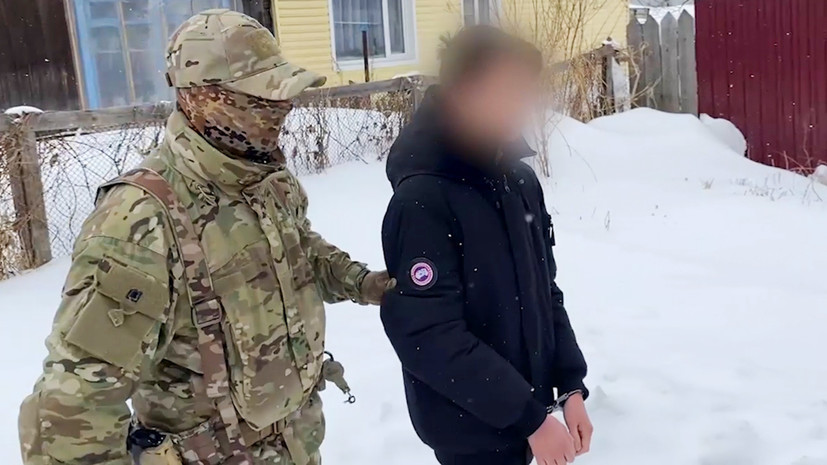On Sakhalin, two students were detained who planned to carry out an armed attack on a technical school. This was reported by the Center for Public Relations of the FSB of Russia.
“Two students of one of the educational institutions of the Sakhalin Region born in 2002 and 2003, who were involved in the propaganda of terrorism, mass killings and suicide on the Internet, were detained,” the DSP said.
The department said that during searches of the detainees seized weapons, ammunition and improvised explosive devices.
“During the searches, a sawn-off shotgun with ammunition, an industrial detonator, allegedly improvised explosive devices, explosives, and personal diaries containing information about a planned armed attack on the educational institution were seized from students,” the DSP added.
In relation to young people, the FSB opened a criminal case under part 2 of article 205.2 of the Criminal Code of Russia (public calls for terrorist activities).
Prevention of an attack in Saratov
At the end of February, FSB officers stopped another attempt to attack the educational institution. In Saratov, department officials detained two teenagers, 14 and 15 years old, who intended to attack their peers for reasons of revenge.
The agency said the young people were “online communities promoting the ideology of massacres and suicide.” The detention took place on the territory of an abandoned bomb shelter, where teenagers kept a sawn-off shotgun in a cache. In addition to this type of weapon, they were preparing to use incendiary mixtures, the manufacturing methods of which they found on the Internet.
The FSB published a video in which one of the detained young people said that his accomplice expected to kill "about 40 people." The attack was planned to be carried out in May 2020.
Subsequently, the court decided to place both detainees in Saratov in custody.
Detention in Crimea
Shortly before the events in Saratov, another preventive operation took place in the Crimea. FSB officers detained two students preparing an attack on one of the educational institutions in Kerch.
The teenagers born in 2003 and 2004 were detained. Homemade explosive devices with explosive elements, as well as components for the manufacture of explosives, were seized from them.
Attackers also had plans for armed attacks, building plans, and bomb-making plans.
According to the FSB, young people led the so-called death groups, in which they persuaded participants to similar attacks, and were also followers of Vladislav Roslyakov.
We are talking about a young man who, as a fourth-year student at the Polytechnic College in Kerch, launched an explosion on 17 October 2018 and opened fire on people in the building of the educational institution.
The victims of this attack were 20 people, including five employees of the institution and 15 students, of whom six were minors. As a result of the incident, more than 40 people were hospitalized.
Schoolboy from Kazan
In early March, the National Anti-Terrorism Committee also talked about a schoolboy from Kazan who was planning the murder of his classmates and made a video about an alleged crime.
Law enforcement authorities said that the young man "called the 112 service and said he was ready to shoot everyone." He explained to the police officer that he did not have authority among classmates and did not have time to learn a foreign language.
“He even shot the video himself, as if he had already committed a crime at school. On the video was the instrument of crime - a knife. He had one answer to any question: “I don’t care,” the NAC explained.
The young man was sent to home schooling, having established tight control over him.
At the same time, the preventive activities of the FSB prevented more than 50 attacks on educational institutions since 2018. The department also said that they were able to suppress the activities of about 150 large youth extremist online communities, which included about 50 thousand users.
The FSB also reported on work with more than 7 thousand adolescents who fell "under the influence of destructive ideas." They were members of online communities that “propagandize the ideology of murder” and “target the age group of 12-17 years.”

